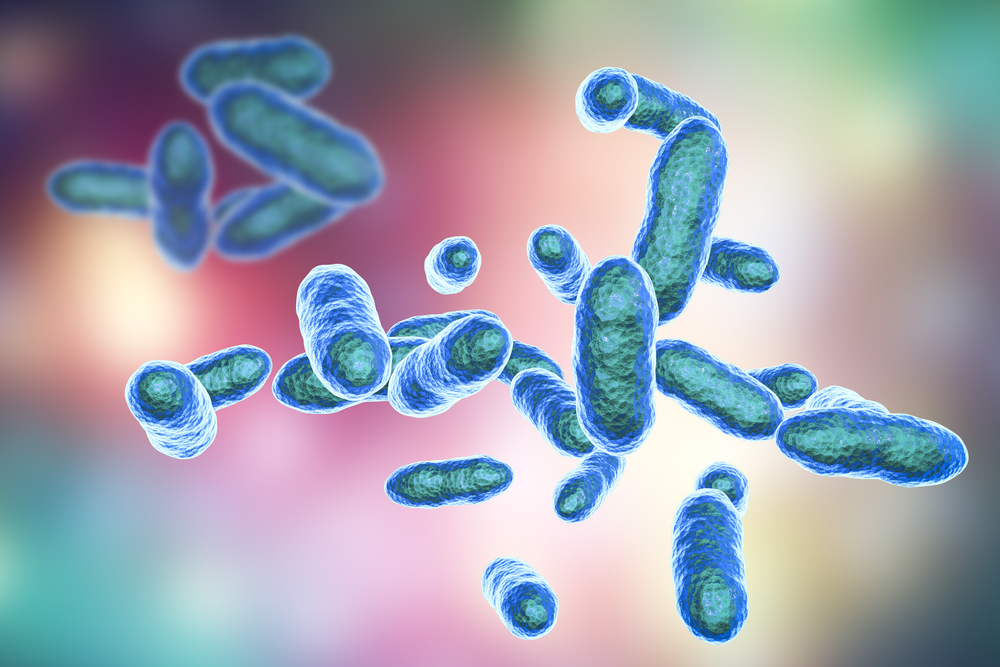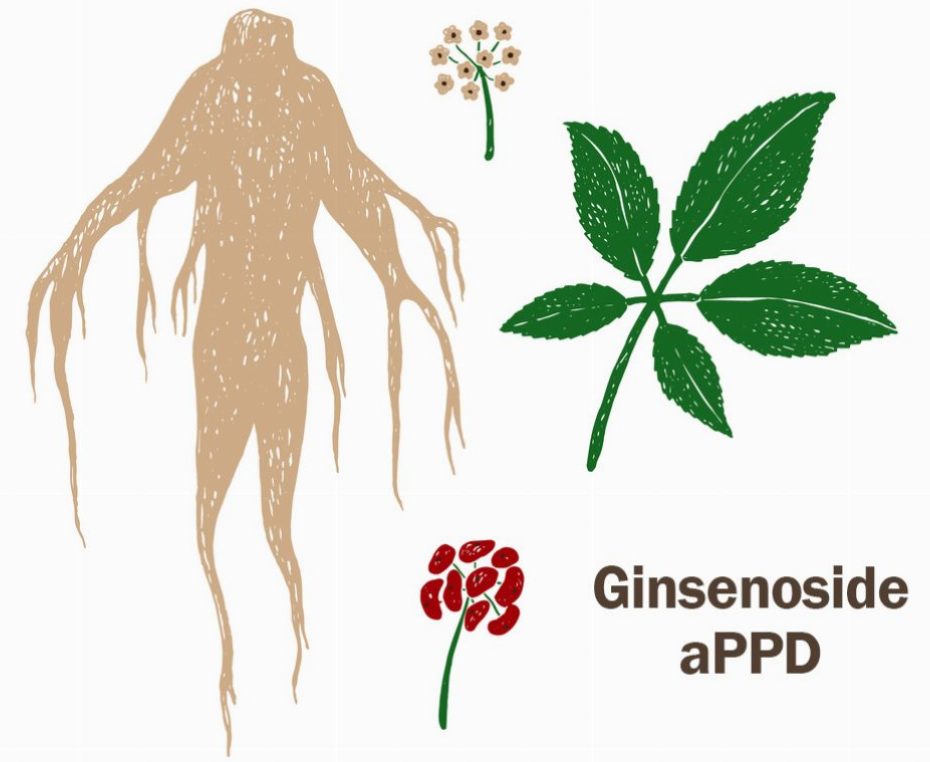Ginsenoside Rk3 shows anticancer activity in lung and esophageal cancer cells
 Ginseng has long been used in traditional medicine to alleviate various ailments over centuries. People use ginseng products to help increase energy, fight fatigue, improve erectile dysfunction, boost immunity and support cognition. Ginseng tea has already become a popular drink all over the world. Moreover, ginseng is used as herbal medicine to alleviate the symptoms and distress of chronic diseases.
Ginseng has long been used in traditional medicine to alleviate various ailments over centuries. People use ginseng products to help increase energy, fight fatigue, improve erectile dysfunction, boost immunity and support cognition. Ginseng tea has already become a popular drink all over the world. Moreover, ginseng is used as herbal medicine to alleviate the symptoms and distress of chronic diseases.
The medicinal benefits of ginseng are derived from its main active ingredients, called ginsenosides. Ginsenosides have shown various biological activities such as anti-inflammatory, antioxidative, and antitumor effects.
The antitumor activity of ginsenosides has aroused researchers’ interests. The past studies have found that ginsenosides can inhibit cancer cells with fewer adverse effects, which is more advantageous than existing cancer treatments like chemotherapy which can cause serious side effects and drug resistance.
Hundreds of ginsenosides in ginseng have been identified to date. Ginsenoside Rk3 is a rare ginsenoside transformed through unique processing methods. It is reported that through acid transformation, 8.3 mg of ginsenoside Rk3 and 18.7 mg of ginsenoside Rh4 can be produced from 100 mg of ginsenoside Rh1.
Considering current studies have a comprehensive investigation of the antitumor activity of ginsenosides like Rg3 and Rh2 (the best-known and most studied ginsenosides) but less explored the tumor activity of ginsenoside Rk3, a Chinese research team from began their research on ginsenoside Rk3.
Researchers found that ginsenoside Rk3 can exert anti-esophageal cancer activity in vitro and in vivo by mediating apoptosis and autophagy. The findings were published in a peer-viewed online journal PLOS One.
In the study, ginsenoside Rk3 was able to significantly repress cell proliferation and colony formation in two types of esophageal cancer cells and inhibited tumor growth in animal models. Moreover, ginsenoside Rk3 could trigger G1 phase arrest and induce apoptosis and autophagy.
The study results are consistent with the previous study in which the team investigated the antitumor activity of ginsenoside Rk3 in non-small cell lung cancer cells. The study, published in the journal Food & Function, revealed that ginsenoside Rk3 also showed brilliant antitumor effects in non-small cell lung cancer.
Ginsenoside Rk3 reduced tumor cell viability, inhibited both cell proliferation and colony formation and induced G1 phase cell cycle arrest and apoptosis in A549 and H460 non-small-cell lung cancer cell lines. Moreover, ginsenoside Rk3 inhibited tumor growth in mice bearing H460 lung cancer without affecting the weight of the treated mice. The study indicated that ginsenoside Rk3 can be a promising therapeutic agent for human non-small cell lung cancer.
Prototype ginsenosides are naturally occurring ginsenosides in ginseng, and when prepared through unique treatments like heating, enzymatic and microbial treatment, they can be converted into rare ginsenosides. Researchers have found that rare ginsenosides have superior bioavailability and absorption, compared with prototype ginsenosides. Ginsenoside Rk3 is a rare ginsenoside and has stronger bioactivity.
In a study published in the journal Scientific Reports, researchers compared the cytotoxic effects of 23 ginsenosides on six human cancer cells, including HCT-116, HepG2, MCF-7, Hela, PANC-1 and A549. The results showed that most of the rare ginsenosides have dominant antiproliferation activities, such as Rk1, Rk3, and Rh3.
In A549 non-small cell lung cancer cell line, ginsenoside Rk3 showed stronger antiproliferation effects than prototype ginsenosides like Rc, Rd, Re, Rf, F1, Rb1, Rb2, Rg1, Rg2, R-Rh1, S-Rh1, etc.
Ginsenoside Rk3 exhibits strong anticancer activity and fewer side effects, which makes it a promising anticancer agent in the future.
References:
Liu H, Zhao J, Fu R, Zhu C, Fan D (2019). The ginsenoside Rk3 exerts anti-esophageal cancer activity in vitro and in vivo by mediating apoptosis and autophagy through regulation of the PI3K/Akt/mTOR pathway. PLoS ONE 14(5): e0216759. https://doi.org/10.1371/journal.pone.0216759
Duan, Zhi & Deng, Jianjun & Dong, Yangfang & Zhu, chenhui & li, Weina & Fan, Daidi. (2017). Anticancer effects of ginsenoside Rk3 on non-small cell lung cancer cells: In vitro and in vivo. Food Function. 8. 10.1039/C7FO00385D.
Quan, K., Liu, Q., Wan, J. et al. Rapid preparation of rare ginsenosides by acid transformation and their structure-activity relationships against cancer cells. Sci Rep 5, 8598 (2015) doi:10.1038/srep08598


